
Vietnamese and Japanese businesses and experts discuss at the Vietnam - Japan Hydrogen Conference 2024 - Photo: N.BINH
On September 17, at the Vietnam - Japan Hydrogen 2024 conference held in Ho Chi Minh City, Mr. Nobuyuki Matsumoto, Chief Representative of JETRO Ho Chi Minh City Office, said that like Vietnam, the Japanese Government is committed to achieving carbon neutrality by 2050.
State supports business transformation
And to achieve this goal, Japan has been proactively expanding non-carbon energy sources, replacing electricity in the industrial, consumer and transportation sectors with non-carbon electricity, and promoting the use of hydrogen, ammonia, methane and synthetic fuels for heat generation, among other decarbonization initiatives.
The Japanese government has established a green growth strategy since 2020, with hydrogen and ammonia as key industries.
A green innovation plan worth about 2 trillion yen ($13 billion) has been established for 2021.
In addition, the Transformation Promotion Law (GX) was enacted in May 2023, aiming to promote economic and social structural transformation, stimulated by private investment.
The law aims to promote the following three elements in a comprehensive and strategic manner. The first is to reduce greenhouse gas emissions; the second is to ensure a stable energy supply; and the third is to change the industrial and social structure, including lifestyles and business activities.
In addition, in May 2024, the Hydrogen Society Promotion Act was passed to vigorously promote the application of hydrogen in social practice.
The main objective of this program is to review the plans of companies wishing to adopt and use hydrogen and provide support to approved companies.
"Japan's long-term strategy will focus on carbon-free power generation, with the aim of applying hydrogen and ammonia technologies to thermal power plants.
A pilot project at a 1GW thermal power plant began in April and was completed in June this year. Hydrogen and ammonia combustion technology will be developed with the aim of commercialization in the 2030s," Nobuyuki Matsumoto shared Japan's plans.
Vietnam's hydrogen energy development strategy
The workshop attracted Japanese and Vietnamese investors and builders in the fields of infrastructure and energy to exchange information on project development experiences as well as assess the potential for hydrogen energy development in Vietnam. Thereby, grasping opportunities to participate in new energy trends in the private and public sectors.
Mr. Le Ngoc Anh Minh, Chairman of the Vietnam ASEAN Hydrogen Club (VAHC), said that in recent years, selling electricity from renewable energy projects such as wind power and solar power has encountered some difficulties.
With the support of Japan, in March 2023, VAHC was established and has many activities to support stakeholders to raise their understanding and interest in this energy source.
The club members are professionals working in renewable energy, heavy industry and energy market analysis.
According to Vietnam's Hydrogen Energy Development Strategy to 2030, with a vision to 2050, approved by the Government, hydrogen energy development is associated with the overall goal of being based on renewable energy.
By 2050, Vietnam will promote the application of green hydrogen energy and hydrogen-based fuels in all energy-using sectors to decarbonize the economy and make an important contribution to achieving the goal of achieving net zero emissions by 2050.
Along with this strategy, the Vietnamese Government also has many preferential policies on taxes, green finance as well as land rent for projects that meet standards for hydrogen energy development.
According to a report by the International Energy Agency (IEA), global demand for hydrogen and other fuels is expected to increase fivefold by 2050 compared to 2022, with applications in industries such as low-emission steel production, on-site energy generation, and transportation such as cars, trucks, and power generation.
However, hydrogen prices are currently very high compared to fossil fuels, making the role of government important alongside the private sector and its allies.
Source: https://tuoitre.vn/nhat-ban-va-viet-nam-tim-co-hoi-hop-tac-phat-trien-nang-luong-hydrogen-20240917154249597.htm















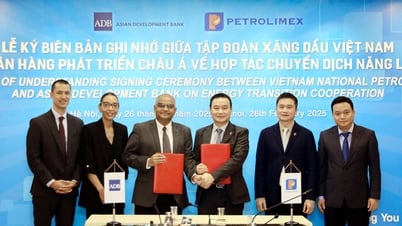




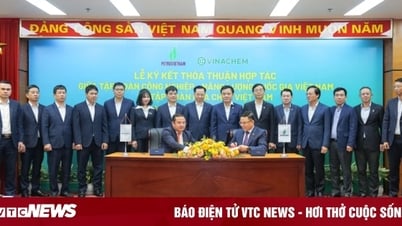













![[Photo] Prime Minister Pham Minh Chinh works with the Standing Committee of Thai Binh Provincial Party Committee](https://vphoto.vietnam.vn/thumb/1200x675/vietnam/resource/IMAGE/2025/5/12/f514ab990c544e05a446f77bba59c7d1)
![[Photo] Prime Minister Pham Minh Chinh receives Swedish Minister of International Development Cooperation and Foreign Trade](https://vphoto.vietnam.vn/thumb/1200x675/vietnam/resource/IMAGE/2025/5/12/ae50d0bb57584fd1bbe1cd77d9ad6d97)

































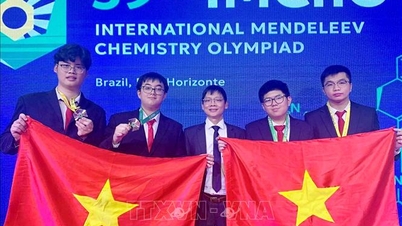









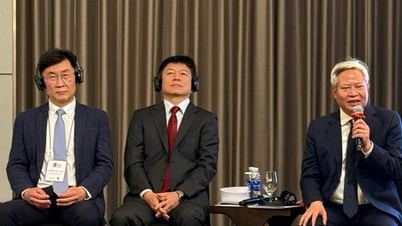





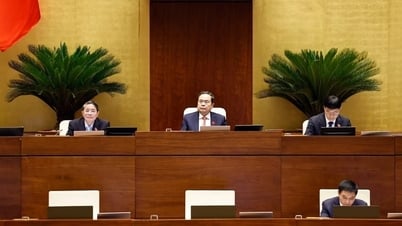


















Comment (0)